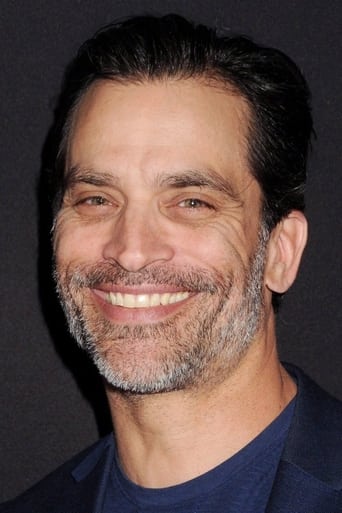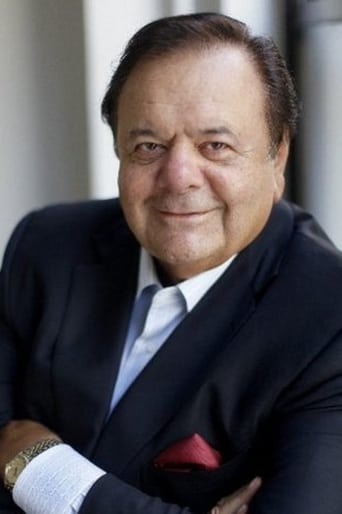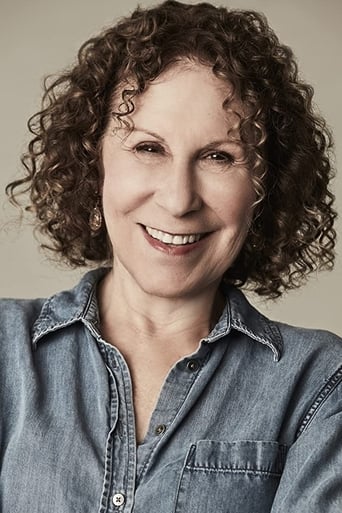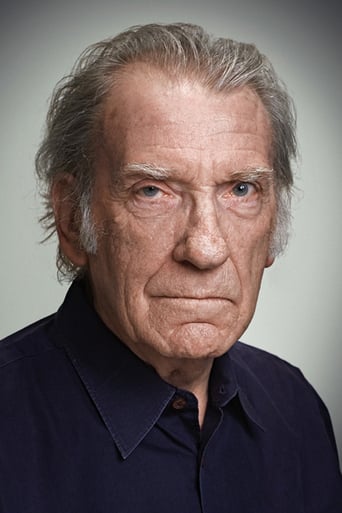NekoHomey
Purely Joyful Movie!
Fairaher
The film makes a home in your brain and the only cure is to see it again.
Murphy Howard
I enjoyed watching this film and would recommend other to give it a try , (as I am) but this movie, although enjoyable to watch due to the better than average acting fails to add anything new to its storyline that is all too familiar to these types of movies.
Usamah Harvey
The film's masterful storytelling did its job. The message was clear. No need to overdo.
Rosabel
This film did a good job creating the atmosphere of the turn-of-the-century show business world Houdini moved in when getting his start. I had high hopes at the beginning, which covers his early career performing with his brother, then later with his young wife, Bess, as they go from one fleabag music hall to another looking for their big break. Jonathan Schaech is very convincing in his portrayal of Houdini as a consummate professional and egoist, driven to succeed and be the very best at what he does. The movie starts to lose focus at the moment Houdini's career takes off; from this point on, it takes on a soap-operaish tone as it turns its attention away from his performing and towards his private life. The Great Mystifier turns into a slightly pathetic character, torn between his inflexible mother and his grouchy wife, and his fascinating career recedes into the background, where it serves as a mere backdrop to the story of his troubled relationship with Bess. Not only do the filmmakers ignore Houdini's unique position in the world of the theatre in favour of a rather hackneyed romantic drama, they go on to change the facts to fit their theme. Bess was not a perpetual wet blanket on Houdini's career; she was a theatre performer herself, and she often worked as his assistant. Though she must have been anxious for his success and safety in his work, it is inaccurate to portray her as frequently on her knees in a Catholic church, like the wife of a mafia don, imploring divine intercession to help an unendurable situation. By all accounts theirs was a generally happy marriage. Nor was Houdini's brother the incompetent and failure he is portrayed as here; as Hardeen, he was himself a successful magician, though never as celebrated as his older brother.But these failures are as nothing compared with the ending, which completely turns on its head everything we know about Houdini, and depicts a seance succeeding in bringing back his spirit after death. It is well known that seances conducted for several years after his death were a complete failure, and Houdini himself had only scorn for the spiritualistic frauds who preyed upon the public. It is even more confusing to have the seance succeed, when at the same moment it is being proved that the medium in charge is a phony. I think that, in the end, the film makers simply did not know what really to make of Houdini, and threw everything they could lay their hands on at him, hoping that something would stick. A film with lots of opportunities, most of them missed.
Erewhon
When Tony Curtis played Harry Houdini in the 1953 George Pal movie, the fact that it wasn't historically accurate wasn't of serious concern, and the movie is entertaining for what it is.The TV movie THE GREAT HOUDINIS was a hasty little film of no particular interest; it's hardly memorable. But by the time 1998 rolled around, the opportunity existed to tell an accurate version of Houdini's life -- and Pen Densham not only wildly blows this, he made a movie that's actually insulting to Houdini's memory, which wasn't true of the earlier versions.The movie falsifies every relationship it depicts; Houdini's brother wasn't a whining ingrate, Houdini's wife Bess was steadfast and loyal, Houdini knew Sir Arthur Conan Doyle for many years, not for the single lunchtime meeting shown in the movie.But the insulting aspect is the element of spiritualism; Houdini spent years debunking it, and NOT just because mediums couldn't put him in touch with his mother. For the movie to show that survival after death is REAL is a betrayal of one of the main aspects of Houdini's life.And they also treat his career all wrong. Where was the Handcuff King? Where was the magician who created gigantic illusions, like walking through a wall or making an elephant disappear? Like the George Pal version, this one also invents a lot of malarkey involving the Chinese Water Torture.Houdini was a very interesting and colorful performer, and he deserves a reasonably accurate biography instead of more claptrap like this.
Chris-150
This was such a great movie! I am not a fan of magic and didn't think I'd like Houdini...however, it was such a sweet love story...I couldn't get enough of it...definitely a movie I'd love to see again. Johnathon Schaech was so believable as Houdini I can't wait to see his other movies. Great job!!
Gislef
...but he can't escape mediocre movie adaptations of his life. This version is merely adequate when it could have been more. Huge amounts of his career are glossed over (his mixed-religion marriage, his brief movie career in Hollywood, his piloting skills, and even many of his escapes), and the focus is mostly on his romance with Bess Weiss. As such, much of this plays out as a soap opera rather than as the biography of the world's greatest performer. His wife's a drunk (until the end, when that plot element is forgotten), his mother is a harsh tyrant (except we don't see anything to really suggest that), and his brother is a whining ingrate. In other words, it's dreadfully rushed: we're left to assume much, both about Houdini's career and his family life, rather than be shown it. Oddly, the revelation of how Houdini did the milk bottle escape in the middle comes across as unnecessary padding when time could have been spent telling us some of the important stuff. The best parts are the bigger actors in minor roles: Rhea Perlman as a psychic, Paul Sorvino as a glory-hungry radio announcer, George Segal as Houdini's manager, and David Warner as Sir Arthur Conan Doyle (although they screw up his relationship with Houdini as well). The ending, with Houdini appearing unseen at his wife's 10th anniversary seance to contact him, redeems much of the movie with a truly romantic ending, though - they actually spend about 12 minutes on it. Unfortunately, by that time we've seen so much of Houdini's Wife the Drunken Shrew that this touching ending is a bit out of place. But hey, at least they (mostly) got how Houdini died correct, which is more than one can say about the previous '53 and '76 versions.




